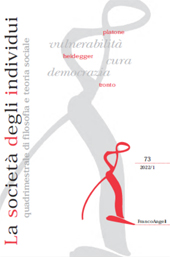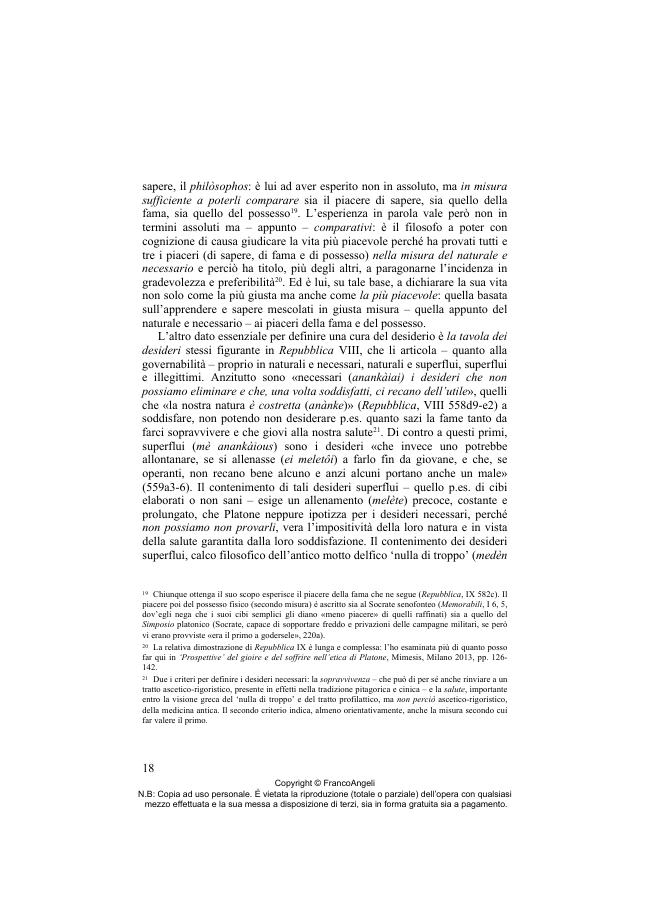Platone e la cura del desiderio : conoscere, contenere, compensare
P. 11-24
Starting from the notion of care of the soul (epimèleia tês psychês: Apology, Alcibiades I) and from the soul's complex structure (Phaedrus, Republic), a Platonic proposal of caring desire can be outlined. The directive-forecasting competence of the rational psychic part (loghistikòn) cannot be reduced to the intellettualistic or even repressive role recognized by traditional readings. Only our reason can know the complex nature of the soul and preview its capacities and activities, both of the parts and the whole. However harmonising desires and virtues needs that the other two parts (thymoeidès and epithymetikòn) are involved: they cooperate with reason in containing respective excesses, balancing respective desires, but also in promoting (caring) the best desires we can feel. In this way Platonic virtue (aretè) shows the traditional cognitive face and an emotional one as well and our desires, better than repressed, seem to be cared and educated. [Publisher's text]
Forma parte de
Società degli individui : 73, 1, 2022-
Artículos del mismo número (disponibles individualmente)
-
Información
Código DOI: 10.3280/LAS2022-073002
ISSN: 1972-5752
KEYWORDS
- Plato, soul, desire/desires, care, knowledge, containing, balancing



